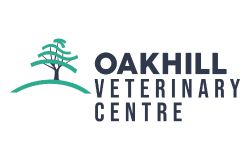This month Oakhill Farm Vet Sam travelled across the Atlantic to Alberta, Canada to visit a bovine embryo transfer unit.
Sam had an interesting insight into the bovine industry there…
[checklist icon=”fa-arrow-circle-right” iconcolor=”#39aa87″ circle=”yes”]
- The main industries in Alberta are oil and beef.
- Alberta has the second largest total farm area in Canada.
- Alberta’s feeder cattle (steers and heifers for feeding or slaughter) account for 59.6% of the national total and the beef breeding stock accounts for 42.3%.
- The predominant breeds that were dealt with at the embryo transfer unit were Angus, Charolais, Hereford and Simmental.
- Typical herd size was 200-300 cows.
- Artificial insemination is common practice in the beef industry.
[/checklist]
The climate is very challenging in the winter. Temperatures can plummet to -20°C to -30°C in January when pedigree herds are calving! Keeping water troughs thawed out and keeping on top of frost bite damage to calves’ ears were particular challenges. The region consists of very marginal grazing land with some barley grown. In mid-may the grass had only just started to think about growing, whilst back home many 1st cut silages were over and done with!
Cattle handling facilities were excellent; hydraulic squeeze crushes were the norm in the region allowing for safe and efficient handling. The cows were of a moderate size with excellent maternal characteristics. Calving ease was a very important trait selected for by farmers. Calves with a birthweight over 100lbs (45kgs) were not retained for breeding irrespective of pedigree. Meat quality is important to the Canadians; marbling is a very desirable feature.
Due to geographical constraints, the majority of cattle travelled to the ET unit for flushing or implanting. The methods and materials used to perform embryo transfer were very similar to here in the UK.
Frozen embryos were shipped all over the world: UK, USA, Argentina, Australia, Thailand to name just a few countries. Introducing genetics into a country through use of embryo transfer is very useful in terms of infectious disease control.
